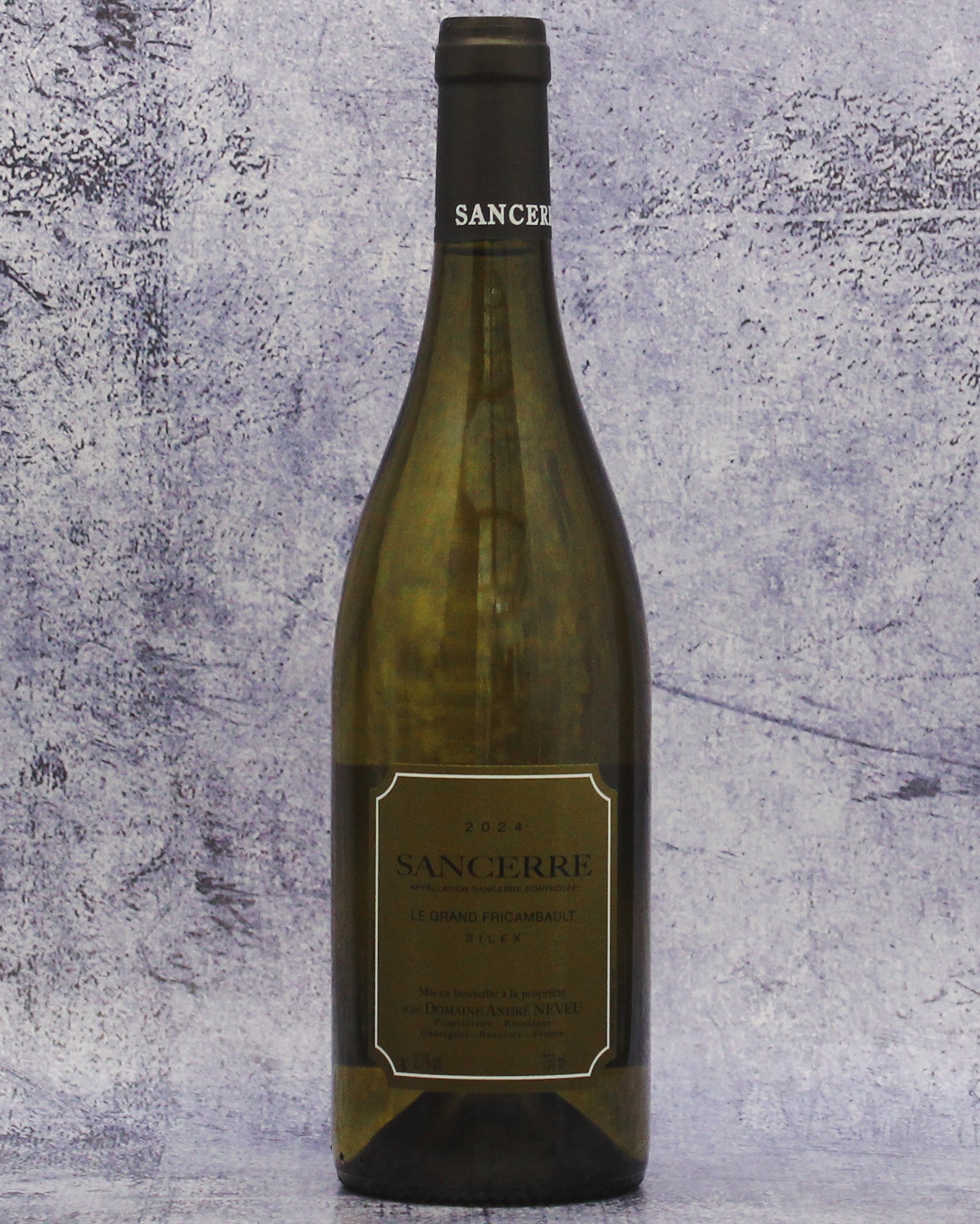Details:
Product Details
| Country: | France |
|---|---|
| Region: | Loire Valley |
| Sub-Region: | Centre-Loire |
| Appellation: | Sancerre AOC |
| Site / Terroir: | 'Le Grand Fricambault' Vineyard |
| Grape(s): | Sauvignon Blanc |
| Wine Style: | White |
| Composition: | Single Varietal |
From: Sancerre, Loire Valley, France
Varietal: Sauvignon Blanc
Tasting Notes: The 2023 Andre Neveu ‘Le Grand Fricambault’ Silex Sancerre is packed with aromas of bright apple, poached pear, lemon, and grapefruit, with hints of broom, subtle savory spice, and a distinct flinty minerality derived from the silex (flint) soils. The attack is ample and tender, and the palate shows a good balance between roundness and freshness. Clean and lively on the finish, which showcases clean, fruity notes of apricot, peach, and flint.
Pairing: This wine will go well with a range of fresh pairings, from shellfish or white fish to perfectly cooked asparagus, spring pea risotto, fresh leafy green salads, smoked trout Rillettes, and herb-marinated seared tofu. Chavignol, where Andre Neveu happens to be based, is also renowned for “Crottin de Chavignol”: miniature drums of goat’s cheese. All the more reason to lean into dishes (like the recipe below) that feature goat’s milk cheeses and herbs.
Quiche With Herbs and Goat Cheese by David Tanis
About. The Sancerre appellation covers not only the area surrounding the village of Sancerre, but also the vineyards planted in 14 surrounding communities. The Neveu family has been based in the heart Chavignol for generations. Resting in a privileged position in a valley, Chavignol is one of the most ancient and best-reputed communes in Sancerre. Today, Valérie (André Neveu’s daughter) and her husband, Thomas, carry on the tradition of the great Sancerrois vignerons as heads of the domaine.
The estate covers about 13 hectares of vineyards representing the gamut of the silex, limestone, pebble, and limestone-clay terroirs found in Sancerre. The ‘Le Grand Fricambault’ cuvée is Andre Neveu’s flagship wine, sourced from a five-hectare parcel of the same name that sits on the famous Sancerre hillside on exclusively silex soils. This is where the domaine’s Pinot Noir vines are planted for Sancerre Rouge and Rosé production.
At harvest, the fruit is machine harvested and destemmed before pressing and transferred to steel tank for a cold soak prior to the start of fermentation. The wine is then aged in steel tanks for roughly 6 months before bottling. The wines always go through full malolactic fermentation.

